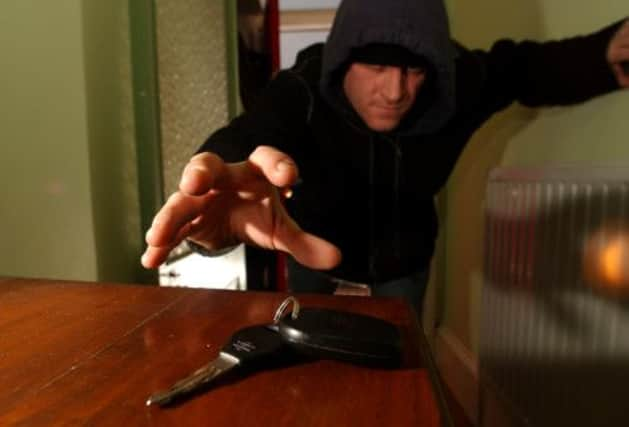Victims of crime set to get face-to-face apologies


Housebreakers, robbers and even violent attackers could be confronted with the impact of their crimes and forced to “take personal responsibility” in the presence of their victims.
The approach has already proved a success in tackling youth crime and is now set for a wider roll-out after being pushed through by opposition parties on Holyrood’s justice committee yesterday.
Advertisement
Hide AdAdvertisement
Hide AdLiberal Democrat justice spokeswoman Alison McInnes secured the change as an amendment to the Victims and Witnesses (Scotland) Bill currently going through the Scottish Parliament.
“Restorative justice can be helpful in assisting victims overcoming their experience,” she said.
“It provides a form of accountability – a forum to receive an apology. It can enable those who have committed crimes to reflect on their actions, take personal responsibility and appreciate the harm they’ve caused and make amends.”
It can also be “key” to the rehabilitation process for both parties, she said.
The Lib Dem said there are already “excellent restorative justice” systems in place, but warned they are emerging in a “very ad hoc fashion”.
She added: “The provision isn’t consistent across the country and best practice isn’t being shared.”
Victims’ groups yesterday welcomed the move. Tom Halpin, chief executive of community justice body Sacro, which works with victims and offenders, said victims often feel they have “difficulty being heard” in the justice system.
He added: “Restorative justice is voluntary and can be an important step in addressing the harm caused to victims by allowing them to express their feelings and the impact the crime has had upon them in a controlled and facilitated way.
Advertisement
Hide AdAdvertisement
Hide Ad“Sacro very much welcomes the recognition of this powerful process by making it more widely available. Restorative justice is beneficial, not only to those victims who have been harmed by crime but also to those responsible by allowing them to make amends and take responsibility for their actions.”
David Sinclair, of Victim Support Scotland, also welcomed the change. “There are benefits from victims being able to hear from perpetrators reasons why they were the subject of whatever crime,” he said.
“It’s something that can be of assistance in understanding why they were the victims.”
The bill should be passed in its final form in parliament in the coming months though the Scottish Government may attempt to overturn the restorative-justice measures.
The process gives victims the chance to tell offenders the real impact of their crimes, to get answers to their questions, and an apology. It is also seen as a means of holding offenders to account for what they have done and helping them to understand the real impact of their crimes, to take responsibility and make amends.
Offenders usually have to undergo some form of “assessment” to show they accept their crimes and are suitable for the process. If victims are keen, both parties then sit down for a series of conferences.
Restorative justice is already used in Scotland, but is largely restricted to young offenders.
Ms McInnes said the meeting would only take place if victims wanted it and could be withdrawn at any time.
Advertisement
Hide AdAdvertisement
Hide Ad“The victim should also be fully informed of how well restorative-justice services work and protected from any form of further victimisation or retaliation,” she said.
Such meetings could take place before sentence is passed on a criminal.
The Scottish Government opposed the move, but it was voted through 5-4 after the opposition parties combined with independent John Finnie on the justice committee to back the measure.
Labour’s Graeme Pearson said: “It’s a whole area of development which we’ve spoken about regularly over the years – here’s an opportunity to do something about it in legislation.”
Conservative MSP Margaret Mitchell also backed the change, describing its absence from the original bill as an “omission”.
Justice secretary Kenny Mac-Askill said he was supportive of the principle of restorative justice and said it had “great benefits” for offenders and had worked particularly well for youth justice.
But he said: “I’m not persuaded that the time is right to introduce what is essentially a statutory right to access such services.
“Detailed consideration would need to be given to the nature and effectiveness of the services offered and to the potential costs, which clearly cannot be ignored in the current financial situation.”
Advertisement
Hide AdAdvertisement
Hide AdMr MacAskill said there were “compelling reasons” for introducing a more flexible approach than enshrining it in law, because it would be difficult to establish the circumstances when restorative justice would be appropriate given the “very personal and specific” nature of each case.
He said he was ready to consider such a review into the benefits of a restorative-justice approach if there was support from victims organisations.
The UK signed up to an EU victims directive last year which established the right of victims who chose to take part in restorative justice to “safe and competent restorative-justice services”.
Member states who opt in also agree to ensure that victims are offered information on the availability of restorative-justice services.
Prison watch
Government plans to overhaul prison monitoring are expensive and confusing, an academic has warned.
Professor Andrew Coyle, who ministers asked to review prison visiting committees, also said the current proposal “implies a significant reduction in the frequency of monitors”.
Alison McInnes MSP said: “The message to the justice secretary is clear. Go back, listen to the experts.”
A government spokeswoman said it would create “a gold standard in prison monitoring”.
READ MORE